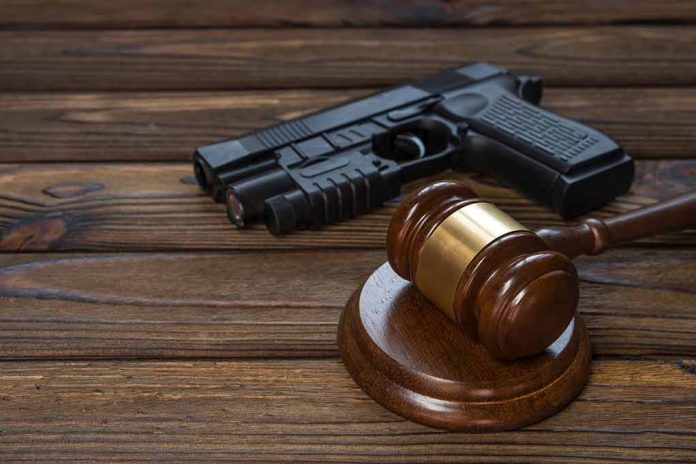
A court has struck down a Missouri statute that sought to prevent police from enforcing some federal gun regulations, but the conflict does not end here.
At a Glance
- A federal judge ruled that Missouri cannot block federal gun regulations.
- The Missouri Second Amendment Preservation Act violated the Supremacy Clause, according to the ruling.
- Missouri Attorney General Andrew Bailey plans to appeal the decision.
- The law disrupted cooperation between Missouri and federal crime-fighting units.
Federal Ruling Against Missouri’s Gun Law
A federal judge has ruled that Missouri’s Second Amendment Preservation Act (SAPA), which aimed to prevent state police from enforcing some federal gun regulations, violates the Supremacy Clause of the U.S. Constitution. This ruling emphasized that federal law is paramount over conflicting state laws. As a result, Missouri’s statute, passed in response to anticipated stricter firearm controls under President Joe Biden’s administration, has been struck down.
The law mandated fines for police departments that enforced federal gun laws unless they had equivalent state laws. This legislation saw significant pushback from federal authorities and local entities, leading to its hold by the U.S. Supreme Court since earlier this year.
Missouri's attempt to stop police from enforcing federal gun laws has been tossed by a judge. Here's why. https://t.co/1H9r6Q1il3
— KSDK News (@ksdknews) August 26, 2024
Implications of the Supremacy Clause
Missouri’s law was found unconstitutional primarily because it contravened the Supremacy Clause. As Chief Judge Steven Colloton stated, “A state cannot invalidate federal law to itself.” This ruling underlines the federal government’s authority in establishing national laws, including those on gun regulation, which states cannot override.
“The Supremacy Clause states that federal law is ‘the supreme law of the land…any thing in the Constitution or laws of any state to the contrary notwithstanding,'” the ruling asserted. “By this declaration, the states are prohibited from passing any acts which shall be repugnant to a law of the United States.”.
This decision not only affects Missouri but also serves as a precedent reinforcing the limits on state authority to challenge federal regulations. The law had reportedly disrupted ongoing crime-fighting partnerships between Missouri’s state agencies and U.S. attorneys, complicating firearms prosecutions and evidence processing in the state.
Response from Missouri Authorities
Missouri Attorney General Andrew Bailey announced plans to appeal the decision, vowing to continue defending state residents’ gun rights. He released a statement expressing his commitment, saying, “I will always fight for Missourians’ Second Amendment rights.” Bailey’s appeal will seek to overturn the court’s ruling and reinstate the state law.
Despite the ruling, Missouri’s government remains steadfast in its quest to ensure that state authorities hold the power to regulate firearms independently of federal mandates. However, the ruling highlights the ongoing tension between state and federal authorities over gun regulation.
Tensions Between Federal and State Authorities
Missouri’s challenge reflects broader national issues regarding gun regulations. With the federal government pushing for stricter controls such as more rigorous background checks for young buyers and support for red flag laws, conservative states like Missouri have grown increasingly resistant. This case emphasizes the states’ struggle to assert their autonomy over firearm regulations amid expanding federal oversight.
As the appeal process unfolds, the outcome could have significant implications for the future of state and federal relations concerning gun control laws. Regardless of one’s stance on gun rights, the fundamental constitutional principles surrounding the Supremacy Clause and state autonomy will remain at the heart of this ongoing legal battle.
Sources
- Court tosses Missouri law that barred police from enforcing federal gun laws
- Court Overturns Missouri Law Banning Police From Enforcing Gun Laws














